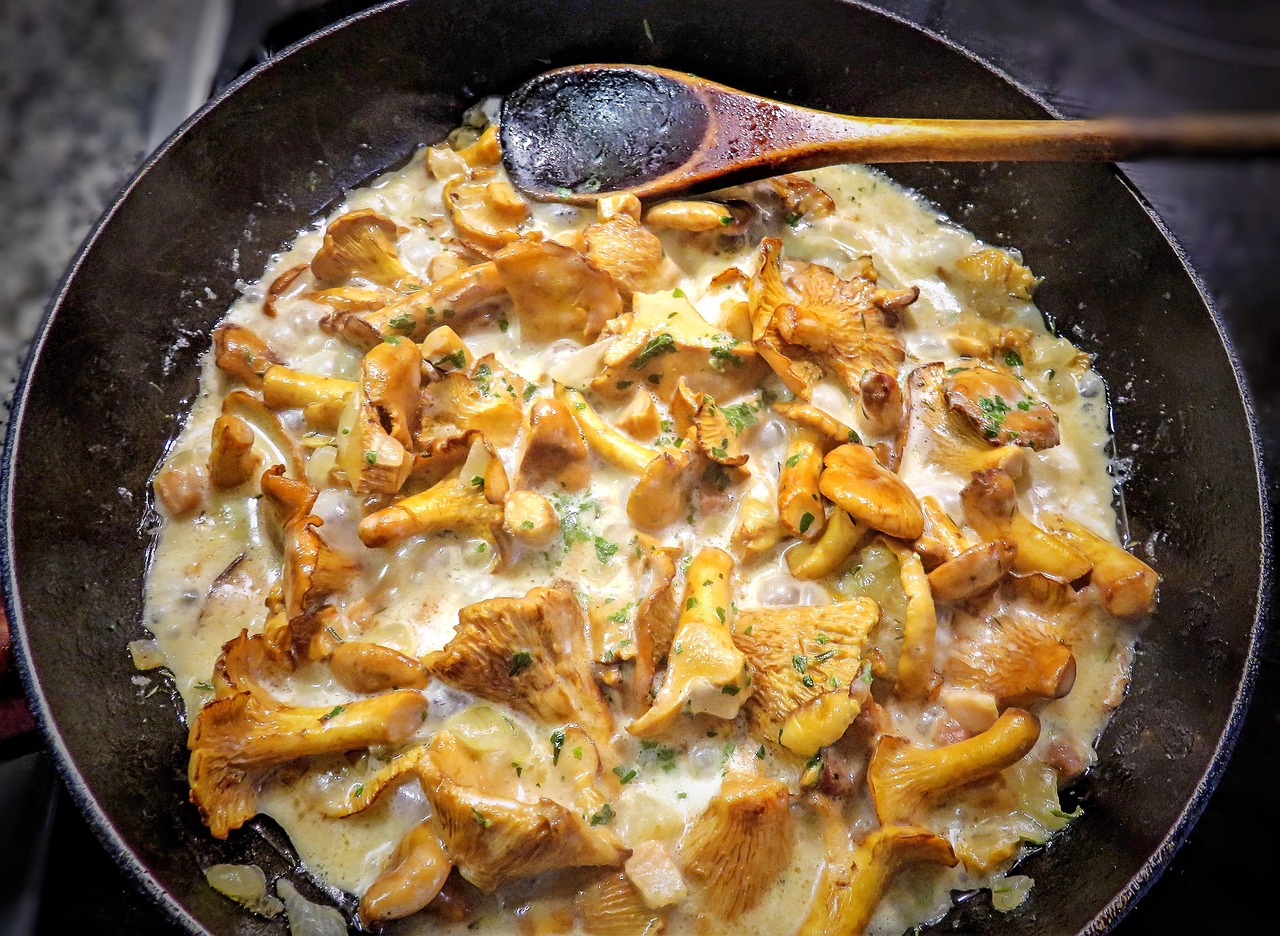Your Guide To Cooking, Storing, Wine Pairing & Recipes For Chanterelle Mushrooms
There’s something so exciting about spotting that flash of golden orange tucked beneath moss and ferns in the forest. Chanterelle mushrooms are not just beautiful—they’re one of the most sought-after wild edibles in the Pacific Northwest and beyond. Their fruity aroma, meaty texture, and subtle peppery notes make them a favorite among chefs and foragers. But once you’ve harvested them, what’s the best way to clean, store, and cook chanterelles?
This guide will walk you through everything: from preparing your haul to cooking, storing, and even pairing chanterelles with wine for the perfect gourmet experience.
Preparing Your Chanterelles
Chanterelles tend to hide dirt and pine needles in their folds, so give them a careful cleaning before cooking:
- Dry cleaning is best. Use a mushroom brush or soft cloth to remove debris.
- Quick rinse if needed. If they’re really dirty, a fast rinse under cool water is fine—just dry immediately with a towel to avoid sogginess.
- Trim stems. Cut away any tough or dirty ends.
Storing Fresh Chanterelles
Fresh chanterelles can be delicate, so handle them with care:
- Refrigerator: Store in a paper bag or wrapped in a paper towel inside a loosely closed container. They’ll last about 5–7 days. Avoid plastic—it traps moisture and makes them slimy.
- Keep them dry: If they start to look damp, change the paper towel.
- Don’t slice until cooking: Whole mushrooms last longer.
Preserving Your Foraged Chanterelles
If you’ve hit the jackpot and brought home more chanterelles than you can eat, here are some ways to make your harvest last:
Freezing
- Dry sauté first. Place mushrooms in a hot skillet with no oil or butter. Let them release their moisture, then cook until liquid evaporates.
- Cool, pack into freezer bags, and freeze. They’ll keep for up to a year.
Drying
- Chanterelles don’t dry as well as porcini or morels since their flavor can get a bit tough and muted. However, if you want to try: slice them thin and use a dehydrator. Rehydrate later in soups and stews.
Pickling
- A more unique method—chanterelles can be lightly pickled with vinegar, herbs, and spices. These make a tangy addition to charcuterie boards and salads.
Cooking Chanterelles
The best part of the journey—cooking your harvest! Chanterelles are versatile, but their delicate flavor shines brightest when treated simply.
Recipe 1: Classic Sautéed Chanterelles
(Perfect for breakfast with eggs or as a side dish)
- 2 cups chanterelles
- 2 tbsp butter
- 1 garlic clove, minced
- 1 tsp fresh thyme
- Salt & pepper
Heat butter in a skillet, add mushrooms, and cook until browned. Toss in garlic and thyme, season, and serve.
Recipe 2: Chanterelle Cream Sauce
(Lush over pasta, steak, or chicken)
- 2 cups chanterelles
- 1 shallot, minced
- ½ cup white wine
- 1 cup heavy cream
- ¼ cup Parmesan cheese
Cook shallots and chanterelles in butter, deglaze with wine, then stir in cream and Parmesan. Reduce until thick and velvety.
Recipe 3: Chanterelle & Potato Hash
(Rustic and hearty—ideal for brunch)
- 2 cups chanterelles, chopped
- 2 medium potatoes, diced and parboiled
- ½ onion, diced
Fry potatoes in olive oil until crisp. Add onion and mushrooms, cook until browned. Top with fresh herbs and fried eggs.
Wine Pairings with Chanterelles
The right wine can make your chanterelle dish truly shine. Because these mushrooms have an earthy yet fruity profile, they pair wonderfully with wines that are elegant but not overpowering.
- White Wine: Chardonnay (lightly oaked), Viognier, or Pinot Gris highlight their fruity notes.
- Red Wine: Pinot Noir or Gamay, with their soft tannins, balance well without masking the mushroom’s delicacy.
- Sparkling Wine: A dry Champagne or Prosecco works beautifully with sautéed chanterelles on toast.
Tips
- Cook them hot and fast to keep texture and flavor intact.
- Always double-check your identification before eating wild mushrooms.
- Pair them with simple ingredients—butter, cream, fresh herbs, potatoes—to let their flavor shine.
- If you’re lucky enough to find a bounty, preserve them so you can enjoy the taste of the forest year-round.
Chanterelles are one of nature’s greatest gifts to the kitchen. Whether you enjoy them fresh in a skillet or pull them from the freezer months later for a rich winter stew, cooking with chanterelles is a celebration of both the forest and the palate.










